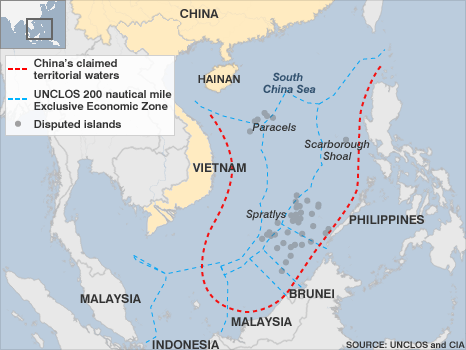To cement Chinese claims to the vast majority of the South China Sea, a garrison is being established in the Paracel Islands:
China’s powerful Central Military Commission has approved the formal establishment of a military garrison for the disputed South China Sea, state media said, in a move which could further boost tensions in already fractious region.
The Sansha garrison would be responsible for “national defence mobilisation … guarding the city and supporting local emergency rescue and disaster relief” and “carrying out military missions”, the Xinhua news agency said on Sunday.
China has a substantial military presence in the South China Sea and the move is a further assertion of its sovereignty claims after it last month upped the administrative status of the seas to the level of a city, which it calls Sansha.
Sansha city is based on what is known in English as Woody Island, part of the Paracel Islands also claimed by Vietnam and Taiwan.




